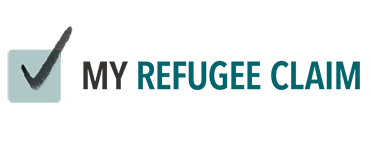At your eligibility interview, IRCC asks you questions to decide if you can make a claim in Canada. This interview is not your refugee hearing.
What happens during the interview
An IRCC officer will:
- Look at your application (BOC Form and all the information from the IRCC Portal) and ask you questions about the information you gave.
- Check the names, dates, places of birth, and contact information of your family members.
- Ask questions to decide if you can make a claim. You will get a free interpreter if you need one.
They will ask you questions like these:
- Why did you come to Canada?
- Who or what are you afraid of in your country?
- What will happen to you if you go back to your country?
- Have you ever been arrested or detained? (for any reason)
- Have you made a refugee claim in another country?
- In what countries do you have legal status or citizenship?
- How did you travel to Canada?
- Who helped you come to Canada?
- Do you have relatives in Canada?
If you are allowed to make a refugee claim
If you can make a refugee claim, the officer will:
- Give you a Confirmation of Referral letter and send your claim to the IRB-RPD. The IRB-RPD will give you a hearing date once they review your file.
- Give you a Refugee Protection Claimant Document (RPCD). This document proves who you are and that you are a refugee claimant. With an RPCD, you can get medical services through the Interim Federal Health Program and other services and benefits in Canada. The form has your Unique Client Identifier (UCI) number.
- Give you a removal order in case your claim is not accepted (only enforced if your claim is refused, withdrawn, or abandoned).
- Explain the next steps in the claim process. It is very important to update IRCC, CBSA, and the IRB-RPD with your current address, email address, and phone number.
- Give you a Claimant’s Kit. It has:
- the certified copies of the identity and travel documents that IRCC took from you,
- a Claimant’s Guide, and
- information from your interview. IRCC also sends these notes to the IRB-RPD.
After a successful interview, you will wait for your refugee hearing with the IRB-RPD. Start thinking about what evidence you can get to support your claim.
If you are not allowed to make a refugee claim
IRCC may decide you cannot make a refugee claim in Canada if:
- You are a convention refugee in another country that you can go to
- You made a refugee claim in United States, United Kingdom, Australia, or New Zealand
- Canada already told you that you cannot make a refugee claim
- You made a refugee claim in Canada that was rejected, abandoned, or withdrawn
- You are dangerous, a criminal, or you have abused human rights
- Canada already made you a protected person
- Canada has already ordered you to leave in a removal order
- At a United States-Canada land border, you were told you could not enter because of the STCA, but later did so without permission
If IRCC does not allow you to make a refugee claim, they will give you a removal order. Speak to a legal representative as soon as possible. CBSA may detain you (hold you in custody). You may be offered a Pre-Removal Risk Assessment (PRRA).
Withdrawing your refugee claim
If you decide to withdraw your claim, CBSA may remove you from Canada. You cannot change your mind or make another refugee claim later. Speak to a legal representative before you withdraw your claim.
